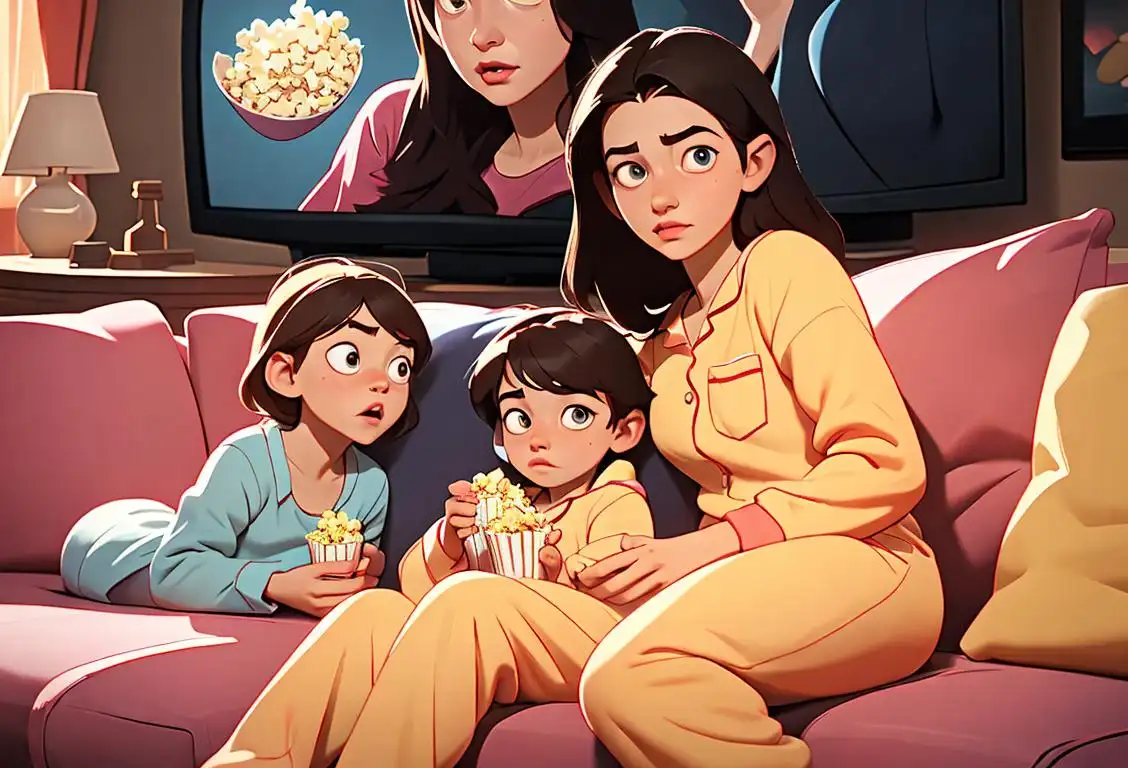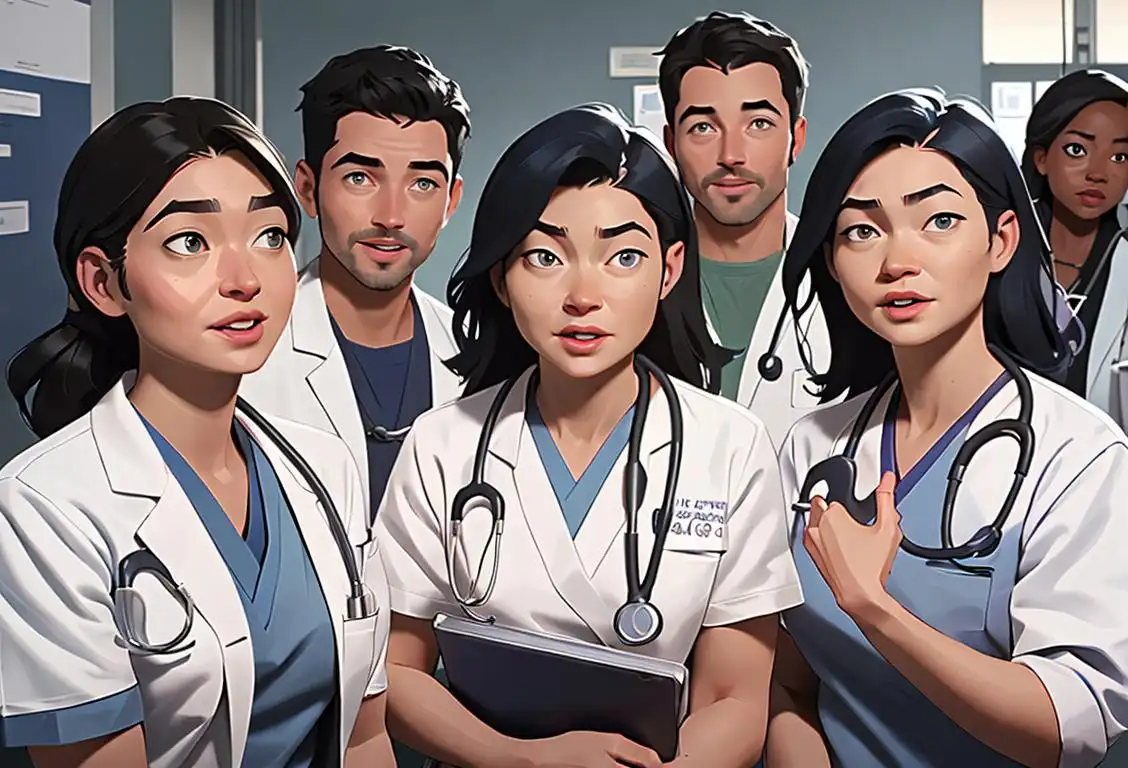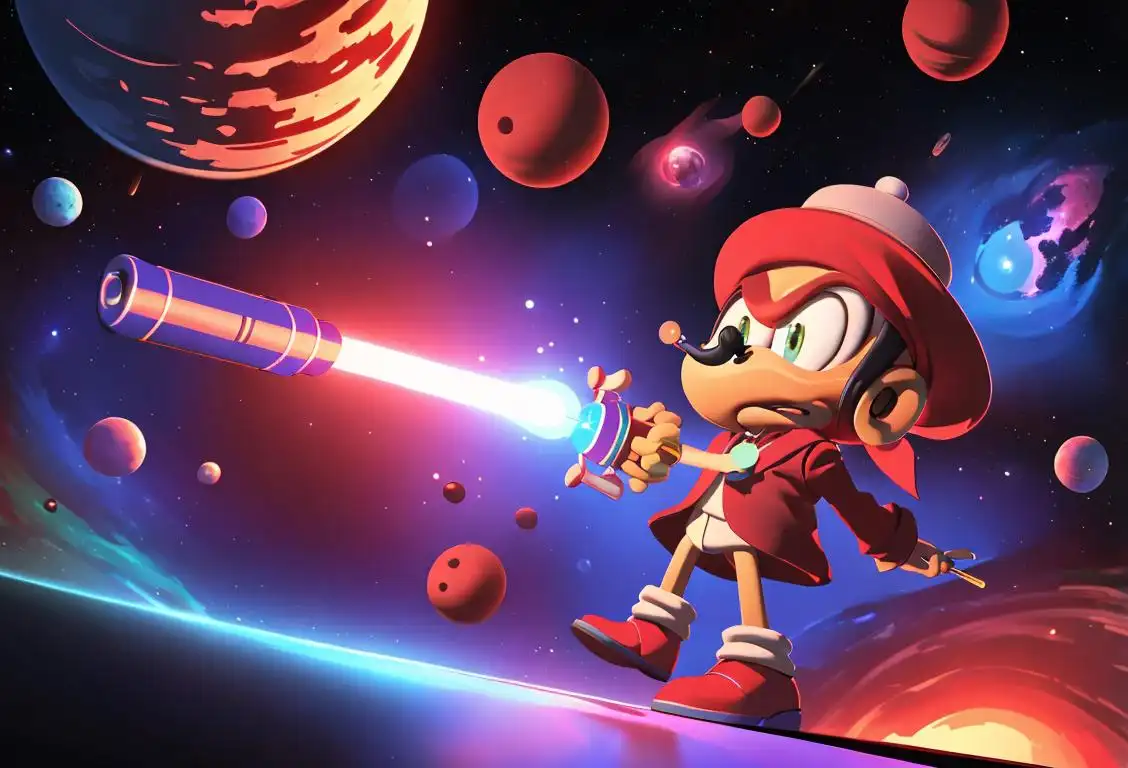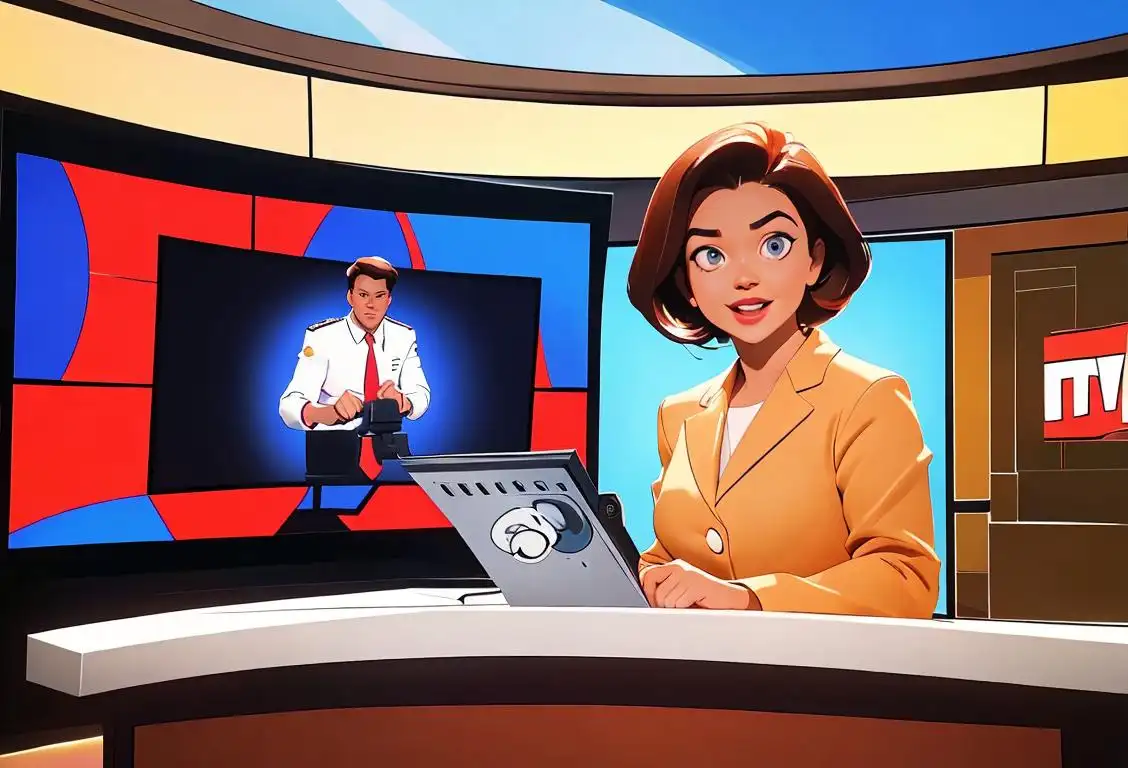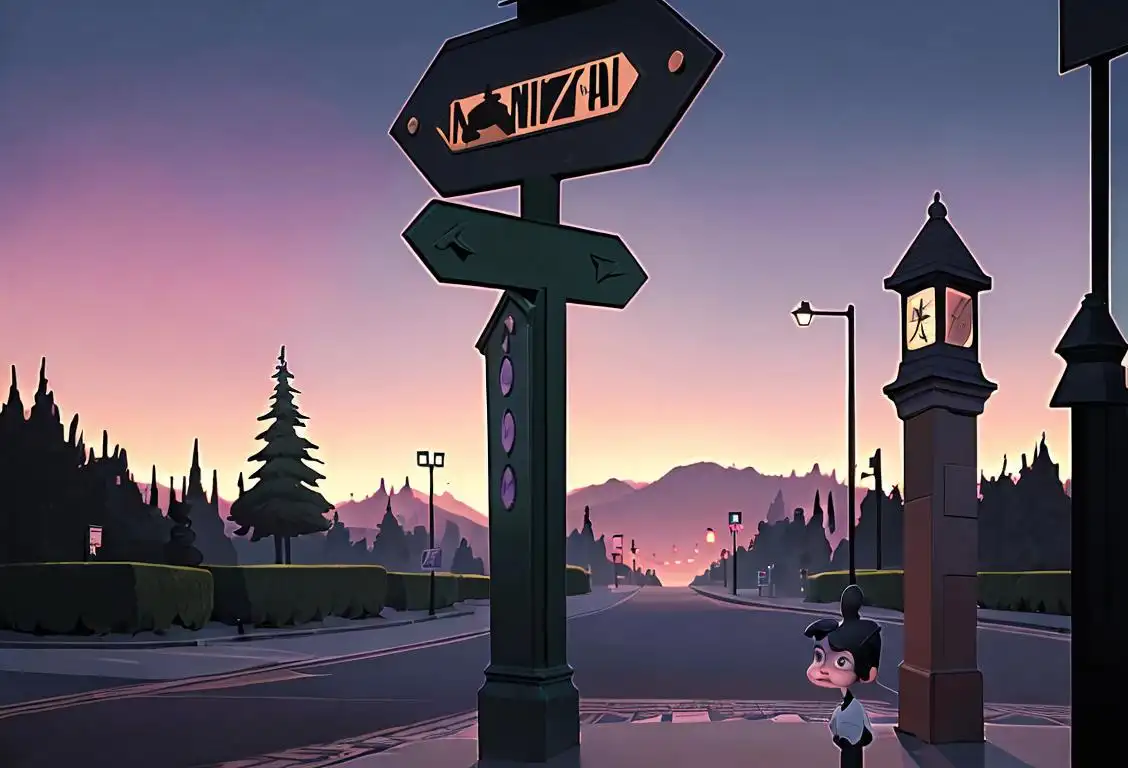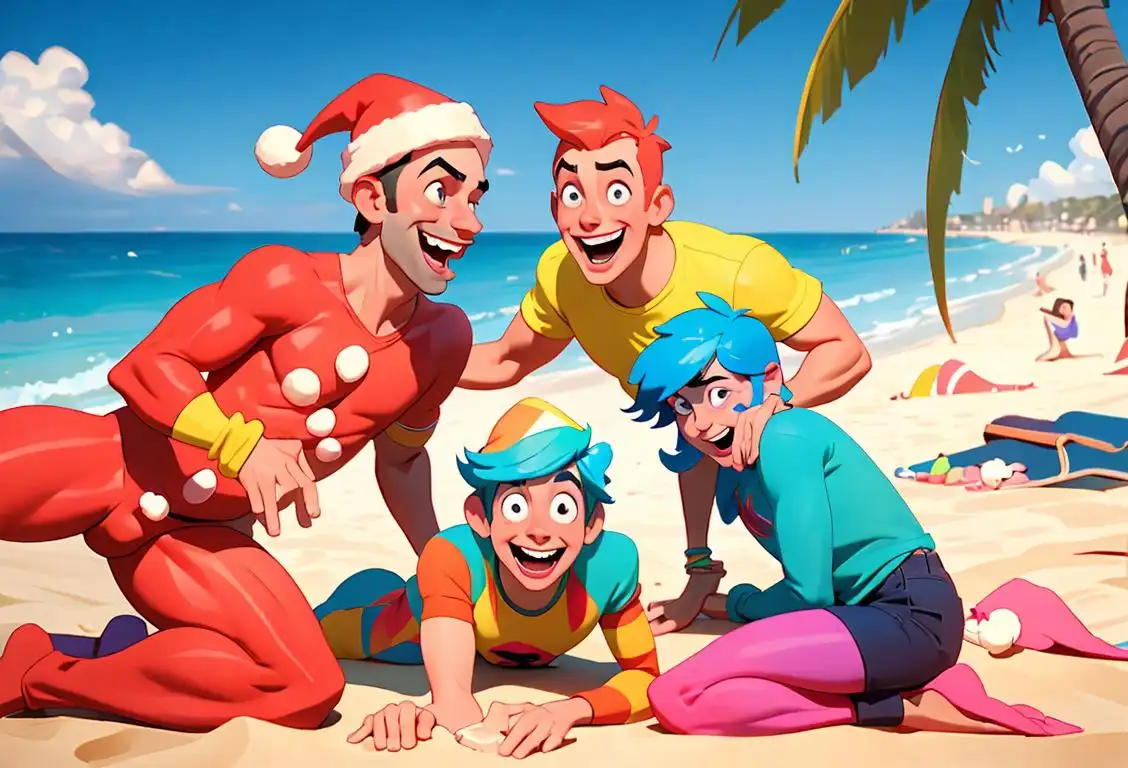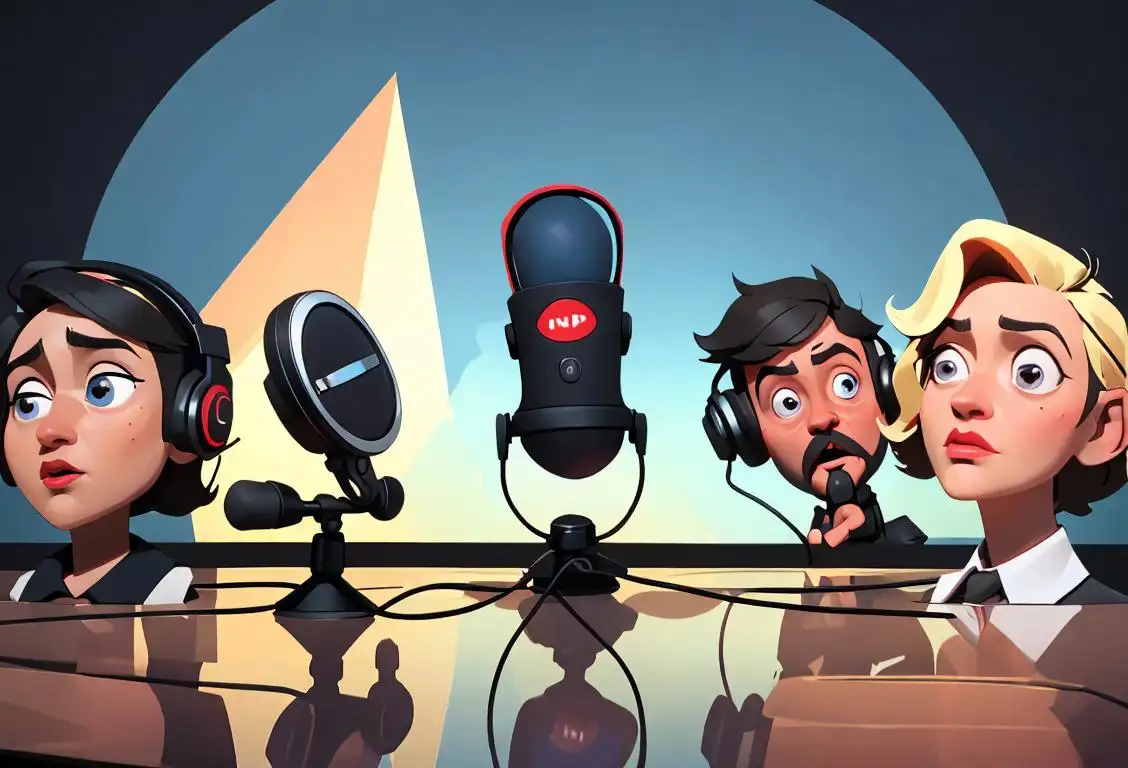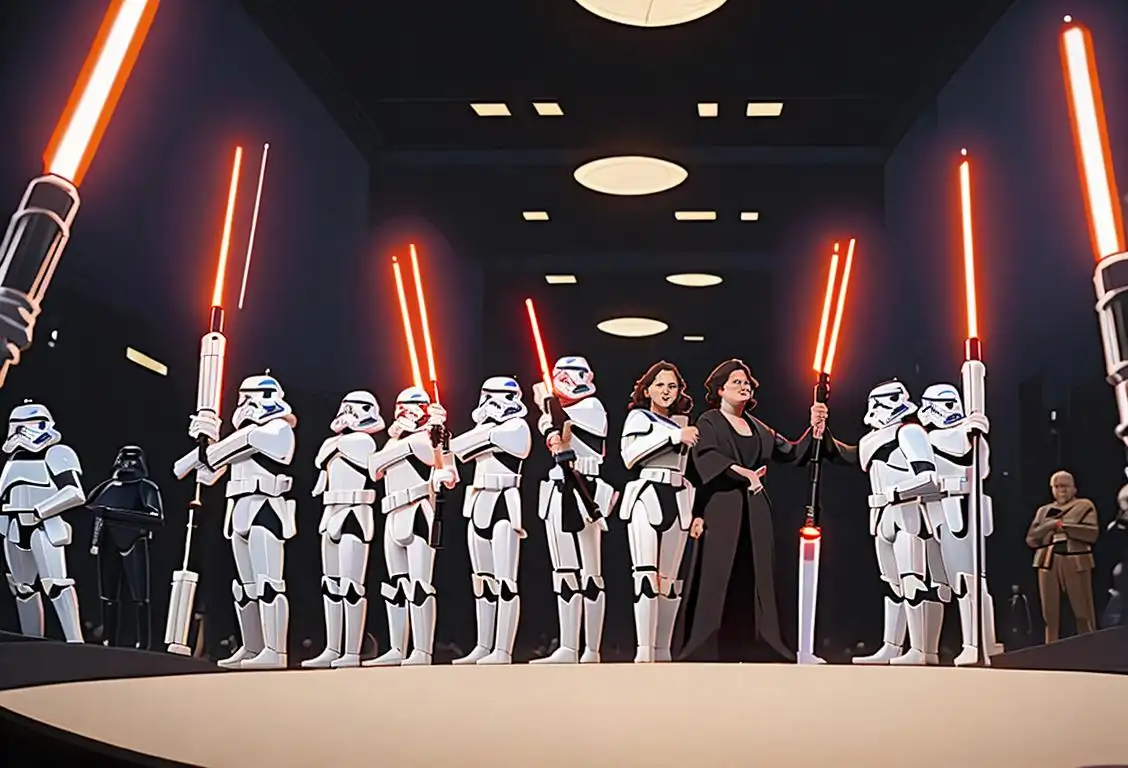National Star Trek Day
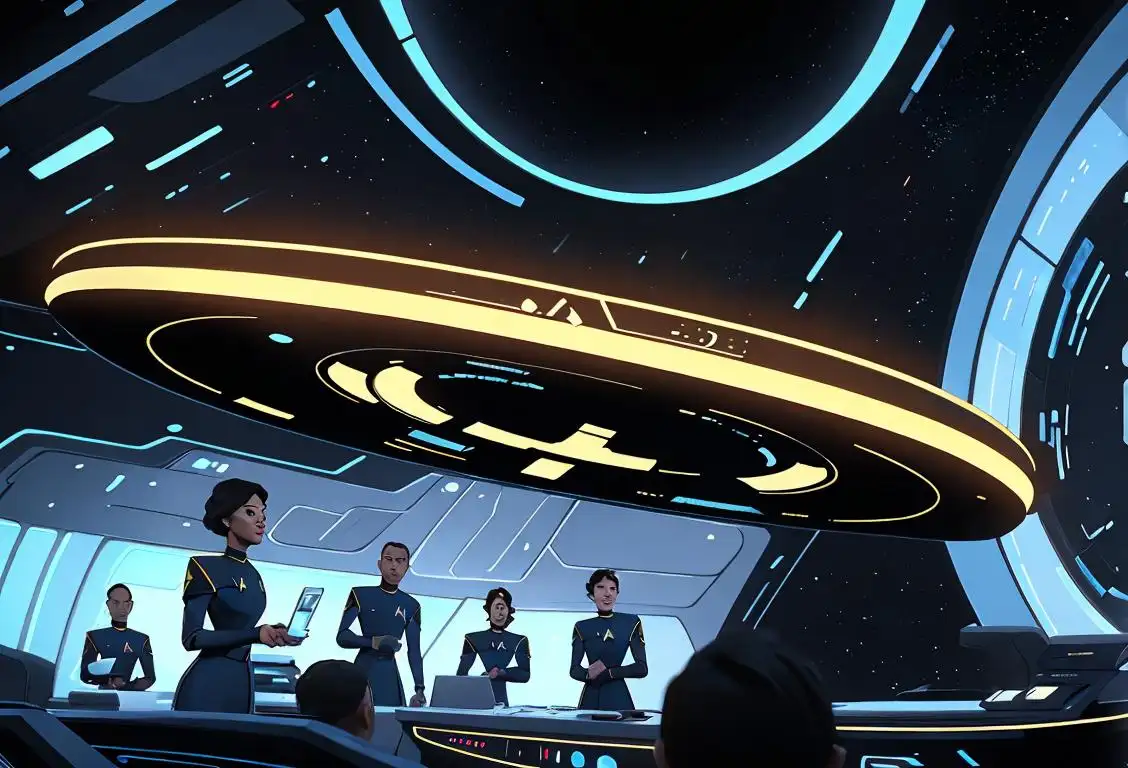
Welcome, fellow Trekkies, to the fascinating universe of National Star Trek Day! Prepare to set your phasers to fun as we embark on a journey through the iconic series that has captivated fans across the globe.
When is Star Trek Day?
It's national star trek day on the 29th September.
A Brief History of National Star Trek Day
For over half a century, Star Trek has continued to inspire and entertain generations of fans with its visions of the future, unique characters, and thought-provoking stories. And on this special day, we commemorate the premiere of the original Star Trek series on September 8th, 1966, bringing us face-to-face with Captain James T. Kirk, Mr. Spock, and the diverse crew of the USS Enterprise.
From its humble beginnings, Star Trek has grown into an expansive franchise that includes multiple television series, movies, books, conventions, and a loyal fanbase that spans galaxies. The show's creator, Gene Roddenberry, envisioned a future where humanity has overcome its differences and united to explore the cosmos while tackling social issues and addressing the human condition.
Each year on National Star Trek Day, fans celebrate by immersing themselves in all things Trek. From binge-watching episodes to hosting themed parties and engaging in vibrant discussions, this day allows enthusiasts to express their love for the franchise in creative and enjoyable ways.
How to Celebrate National Star Trek Day
Are you ready to embark on a Starfleet-approved celebration? Let's explore a few ways you can make the most of this interstellar occasion:
- Dress for the Occasion: Embrace your inner Kirk or Spock and don your best Starfleet uniform or cosplay outfit. Boldly go where no one has gone before with your fashion choices!
- Host a Star Trek Marathon: Gather your loved ones and embark on a journey through the Star Trek universe by watching your favorite episodes or films. Don't forget the popcorn and Klingon-inspired snacks!
- Engage with the Community: Join in virtual events and conversations with fellow Trekkies through social media platforms, fan forums, and online conventions. Share your thoughts, theories, and favorite moments.
- Expand Your Knowledge: Dive into the extended universe of Star Trek by exploring novels, comics, and non-fiction books that delve deeper into the lore and expand on the adventures of your favorite characters.
Did You Know?
Did you know that the popular Star Trek phrase 'Beam me up, Scotty' was never actually said in the original series? Despite its popularity, Captain Kirk never uttered those exact words on screen. However, variations of the phrase have been used throughout the Star Trek franchise.
History behind the term 'Star Trek'
1966
The Birth of a Television Show
In the year 1966, the term 'Star Trek' was born as the title of a groundbreaking television series. Created by Gene Roddenberry, 'Star Trek' followed the adventures of the crew of the starship USS Enterprise as they explored the galaxy, seeking out new worlds and civilizations. The show stood out for its optimistic vision of the future, diverse cast, and thought-provoking storytelling. However, it initially struggled to find a large audience and was canceled after three seasons.
1964
The Birth of an Idea
In 1964, a young television writer named Gene Roddenberry had an idea for a science fiction television series that would explore humanity's potential for exploration and cooperation in the future. He pitched this idea to various networks but faced multiple rejections before finally finding a home for his concept.
1966
The Birth of Star Trek
In 1966, the science fiction television series 'Star Trek' was created by Gene Roddenberry. The show was set in the future and followed the adventures of the starship USS Enterprise and its crew. It quickly gained a dedicated fanbase and became a cultural phenomenon.
1964
The Birth of Star Trek
In 1964, television writer Gene Roddenberry had an idea for a new science fiction TV series. He envisioned a show that would explore the vastness of space, highlighting the adventures of a diverse crew aboard a starship. This concept would eventually become the legendary series known as Star Trek.
1966
Launching into Space
In 1966, Roddenberry's vision became a reality when the television series 'Star Trek' debuted on September 8th. The show followed the adventures of the starship USS Enterprise and its diverse crew as they explored the galaxy, encountering new civilizations and facing moral dilemmas. 'Star Trek' challenged conventional science fiction narratives of the time and introduced viewers to a future where humanity had overcome many of its social and political issues.
1966
The First Voyage
On September 8, 1966, Star Trek made its debut on NBC. The series followed the crew of the USS Enterprise, led by Captain James T. Kirk, as they embarked on exciting missions across the galaxy. With its thoughtful storytelling and progressive themes, Star Trek quickly gained a devoted fanbase.
1979
The Rise of the Star Trek Movies
After the cancellation of the original series, 'Star Trek' gained a cult following through syndicated reruns. This growing fan base eventually led to the release of the first 'Star Trek' movie in 1979, titled 'Star Trek: The Motion Picture.' The movie marked the beginning of a successful film franchise that would span several decades. It brought the beloved characters from the TV show back to the big screen, introducing them to a new generation of fans.
1972
The First Convention
In 1972, the first 'Star Trek' convention was held in New York City. It was organized by a group of fans who wanted to celebrate the series and bring together like-minded individuals. The convention featured guest appearances from the show's actors, panel discussions, and screenings, marking the start of 'Star Trek' fandom.
1979
The Jump to the Big Screen
In 1979, 'Star Trek' made its jump to the big screen with the release of the film 'Star Trek: The Motion Picture.' The movie reunited the original television series' cast and continued the adventures of the crew of the USS Enterprise. This marked the franchise's expansion beyond television and into motion pictures.
1987
The Next Generation
In 1987, 'Star Trek' returned to television with a new series called 'Star Trek: The Next Generation.' Set approximately 100 years after the events of the original series, the show introduced a fresh cast of characters led by Captain Jean-Luc Picard. 'The Next Generation' became a critical and commercial success, running for seven seasons and solidifying 'Star Trek's' place as a pop culture phenomenon.
1969
The Original Crew Bids Farewell
After three successful seasons, Star Trek faced cancellation due to low ratings. However, its passionate fanbase led a widespread letter-writing campaign, which caught the attention of network executives. As a result, Star Trek was granted a third season, but unfortunately, it marked the end of the original series.
The 1970s
Cult Following and a Second Chance
Despite low ratings, 'Star Trek' garnered a devoted fanbase during its initial run. The cancellation of the series after three seasons seemed like the end, but something unexpected happened. Reruns of the show gained popularity in syndication during the 1970s. This surge in viewership sparked a renewed interest in 'Star Trek' and led to the production of an animated series in 1973, which further expanded the universe.
1979
The Return on the Big Screen
Star Trek returned in 1979 with the release of the film 'Star Trek: The Motion Picture.' This marked the beginning of a new era for the franchise, as it ventured into the realm of feature films. The Star Trek movies would go on to captivate audiences with their grandiose storytelling and groundbreaking visual effects.
1987
The Next Generation
In 1987, a new 'Star Trek' television series called 'Star Trek: The Next Generation' premiered. Set approximately a century after the original series, it introduced a new crew and a new starship, the USS Enterprise-D. The show was hugely successful and continued the 'Star Trek' legacy.
1991
Generations Collide
In 1991, an epic crossover event took place in the 'Star Trek' universe. The movie 'Star Trek: Generations' brought together the iconic characters from the original series and 'The Next Generation.' Captain James T. Kirk and Captain Jean-Luc Picard joined forces in a thrilling adventure that delighted fans of both iterations of 'Star Trek.' This crossover marked a significant moment in the franchise's history, uniting two generations of fans.
1979
The Voyage onto the Big Screen
In 1979, the first 'Star Trek' feature film, simply titled 'Star Trek: The Motion Picture,' was released. This marked the franchise's transition from the small to the big screen and demonstrated its enduring appeal and cultural relevance. The film paved the way for future 'Star Trek' films and solidified the series' place in popular culture.
1987
The Next Generation
In 1987, a new chapter in the 'Star Trek' saga began with the launch of the television series 'Star Trek: The Next Generation.' Set approximately 100 years after the original series, the show introduced a new cast of characters aboard the USS Enterprise-D. It continued the exploration of social and moral issues while building upon the foundation laid by its predecessor.
1987
The Next Generation
In 1987, a new Star Trek series took the television world by storm. 'Star Trek: The Next Generation' introduced an entirely new crew led by Captain Jean-Luc Picard. The series expanded the Star Trek universe and delved deeper into its rich lore, attracting both loyal fans and a new generation of viewers.
1991
Deep Space Exploration
In 1991, 'Star Trek: The Next Generation' was joined by another 'Star Trek' series called 'Star Trek: Deep Space Nine.' This new show followed the crew stationed on a space station near a newly discovered stable wormhole, providing a fresh perspective and exploring new themes within the 'Star Trek' universe.
1995
Deep Space Exploration
Following the success of 'The Next Generation,' 'Star Trek' continued to expand its universe with new TV shows. In 1995, 'Star Trek: Voyager' premiered, taking audiences on board the starship USS Voyager as it became stranded on the other side of the galaxy. This series introduced the first female lead character, Captain Kathryn Janeway, and delved into the challenges of deep space exploration, showcasing the resilience and resourcefulness of the crew.
1993
Deep Space Exploration
After the success of 'The Next Generation,' the franchise expanded further with the launch of 'Star Trek: Deep Space Nine' in 1993. This series departed from the traditional starship exploration format and instead focused on the space station Deep Space Nine and its diverse crew. It delved into complex political and cultural issues, pushing the boundaries of storytelling within the 'Star Trek' universe.
1995
Voyaging to New Frontiers
In 1995, 'Star Trek: Voyager' premiered, becoming the third 'Star Trek' series on television. The show followed the adventures of the USS Voyager, a starship stranded in the distant Delta Quadrant. 'Voyager' broke new ground by featuring a female captain, Captain Kathryn Janeway.
2009
Rebooting the Franchise
In 2009, 'Star Trek' underwent a reboot with the release of a new movie simply titled 'Star Trek.' Directed by J.J. Abrams, this film introduced a new cast portraying the original characters in an alternate timeline. The reboot revitalized the franchise, attracting a new generation of fans while still paying homage to the beloved characters and storytelling of the original series. It went on to spawn two sequels and reignited interest in 'Star Trek' on both the big and small screens.
1995
Deep Space Exploration
Star Trek continued to flourish with the launch of 'Star Trek: Deep Space Nine' in 1995. This series departed from the traditional starship format and explored the lives of the characters stationed aboard a space station near a turbulent wormhole. It tackled darker themes and showcased the franchise's versatility.
2001
A Prequel Series
In 2001, 'Star Trek: Enterprise' premiered, serving as a prequel to the original series. It was set in the 22nd century and followed the crew of the starship Enterprise NX-01. The show explored the early days of space exploration and laid the foundation for the 'Star Trek' universe.
2001
Towards New Horizons
With 'Star Trek: Enterprise,' which premiered in 2001, the franchise took viewers even further back in time to explore the origins of the United Federation of Planets. The series followed the crew of the starship Enterprise NX-01 as they embarked on humankind's first deep space explorations. Although it faced cancellation after four seasons, it added valuable depth and context to the 'Star Trek' mythos.
2001
Voyager's Journey
'Star Trek: Voyager' took viewers on a remarkable journey in 2001. The series followed the adventures of a starship stranded in unknown space, far from home. With its diverse cast and compelling storylines, Voyager further solidified Star Trek's legacy as a beacon of inclusivity and imagination.
2009
Rebooting Star Trek
J.J. Abrams revitalized the Star Trek franchise with the 2009 film simply titled 'Star Trek.' This reboot introduced a new timeline, allowing for fresh interpretations of beloved characters like Captain Kirk and Spock. The film appealed to both longtime fans and a new generation of moviegoers.
2009
Reimagining the Franchise
In 2009, director J.J. Abrams released the film 'Star Trek,' a reboot of the original series. The film introduced a new cast portraying the iconic characters from the original series in an alternate timeline. It revitalized the franchise and appealed to both longtime fans and newcomers.
2009
Rebooting the Universe
In 2009, director J.J. Abrams revitalized the franchise with a new perspective by releasing the film 'Star Trek.' This reboot featured a younger cast portraying the iconic characters from the original series in an alternate timeline. The film introduced the concept of a 'Kelvin timeline,' allowing for fresh interpretations while maintaining connections to the beloved original series.
2017
Expanding the Television Universe
In 2017, 'Star Trek: Discovery' premiered, becoming the first 'Star Trek' series in over a decade. Set roughly a decade before the events of the original series, it followed the crew of the USS Discovery on their mission. The show embraced modern storytelling techniques while staying true to the 'Star Trek' ethos.
2020
Continuing the Legacy
The 'Star Trek' franchise continues to thrive in various forms, including television series such as 'Star Trek: Discovery,' 'Star Trek: Picard,' and 'Star Trek: Lower Decks.' Each new iteration explores contemporary themes while honoring the spirit of the original series. 'Star Trek' remains a cultural phenomenon, inspiring generations with its optimistic vision of humanity's future.
2017
Boldly Going to Streaming
Star Trek made its way into the streaming landscape in 2017 with the launch of 'Star Trek: Discovery.' This series embraced a more serialized format and offered intricate storytelling set before the events of the original series. Streaming allowed Star Trek to reach a global audience and revolutionize its distribution.
2020
A New Generation
Star Trek continued its expansion with 'Star Trek: Picard' in 2020, bringing back the iconic Captain Jean-Luc Picard portrayed by Sir Patrick Stewart. This series followed Picard's later years and delved into more character-driven narratives, while honoring the rich history of the franchise.
Did you know?
Did you know that the popular Star Trek phrase 'Beam me up, Scotty' was never actually said in the original series? Despite its popularity, Captain Kirk never uttered those exact words on screen. However, variations of the phrase have been used throughout the Star Trek franchise.Tagged
fun entertainment sci-fi tvFirst identified
4th May 2015Most mentioned on
29th September 2020Total mentions
98Other days
Star Trek Day
Tv This Day
Greys Anatomy Fan Appreciation Day
Doctor Who Day
Tv Station Rounded Up News Session For The Day
Twilight Zone Day
Best Dick Day
Sport Day
Podcast Day
Star Wars Day
